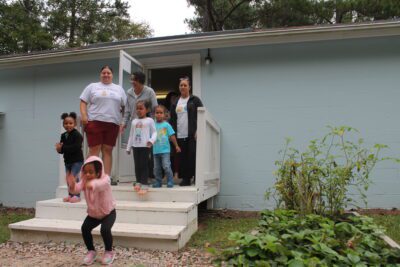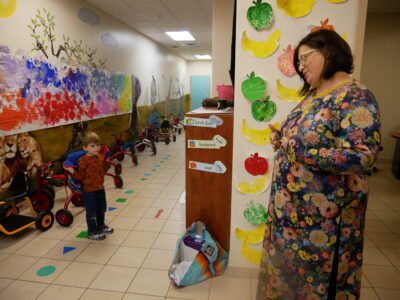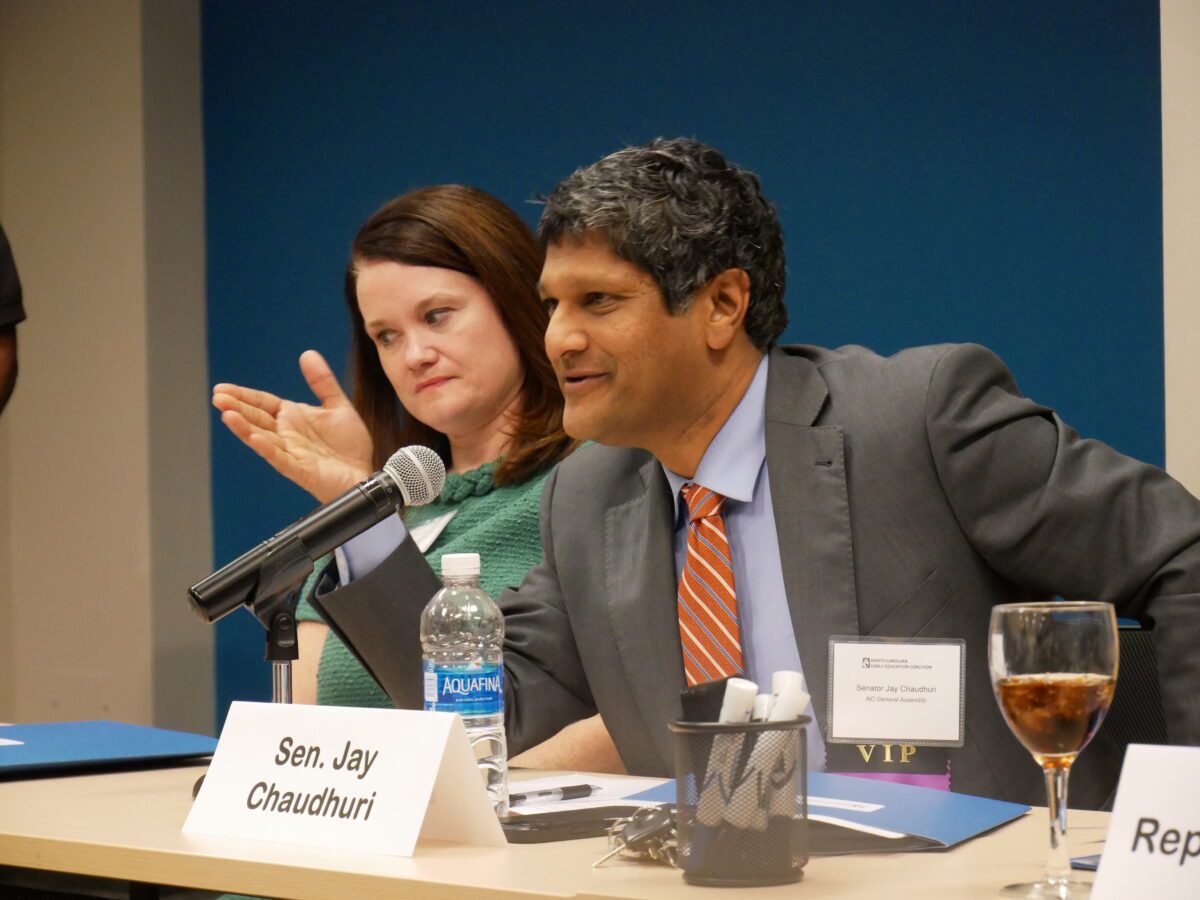
Increased compensation for child care teachers — who make some of the lowest wages of any industry — was at the forefront of conversations between legislators, advocates, and educators last week.
“If we don’t deal with the pay issue of child care workers, we can’t do anything else,” said Sen. Jim Burgin, R-Harnett, during a panel at Child Care Heroes, an annual convening hosted by the N.C. Early Education Coalition.
Burgin shared the panel with his fellow co-chairs of the early childhood legislative caucus: Rep. Ashton Clemmons, D-Guilford, Rep. David Willis, R-Union, and Sen. Jay Chaudhuri, D-Wake.
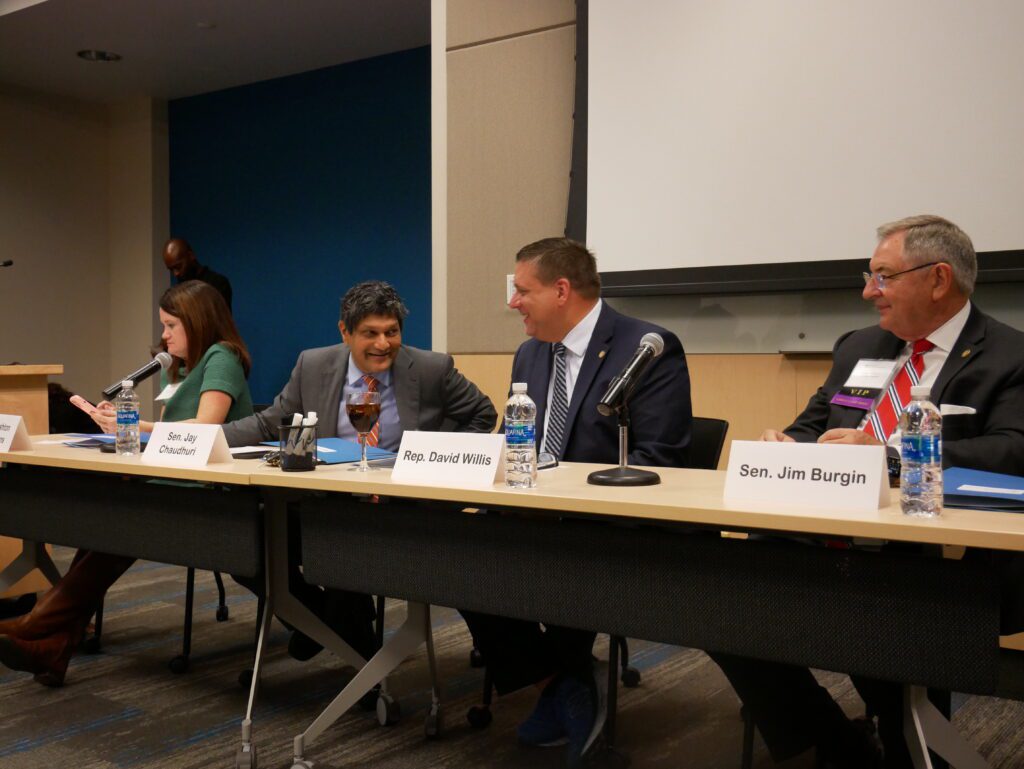
The caucus’ biggest ask this past session did not make it into the budget: A one-time $300 million investment to continue compensation grants to child care programs that started through federal pandemic relief money.
Without new funding, those grants will end at the end of June 2024. That funding cliff is expected to cause program closures, higher prices for parents, and cuts to teacher compensation.
![]() Sign up for Early Bird, our newsletter on all things early childhood.
Sign up for Early Bird, our newsletter on all things early childhood.
“We need to turn the heat up on the crisis that’s about to happen,” Clemmons said. “Because now we know the date, we know when it’s gonna run out, we know what’s happening in other states.”
The RAPID Survey Project and the National Association for the Education of Young Children (NAEYC) asked providers and families about what’s happening in places where those funds expired in September. Though North Carolina is using another pot of money to help programs through June, the results are an indication of what is to come if the state doesn’t find a solution.
The survey results, released this week, from more than 1,000 providers and 1,000 families with young children, showed that families and providers are already feeling the expected consequences of the funding cliff.
Of those who responded:
- 29% of families reported tuition increases in the last month.
- 28% of providers losing the grants said they had to cut educator wages.
- 24% of providers who lost funding are now serving fewer children.
- 79% of parents looking for care are having difficulty finding it.

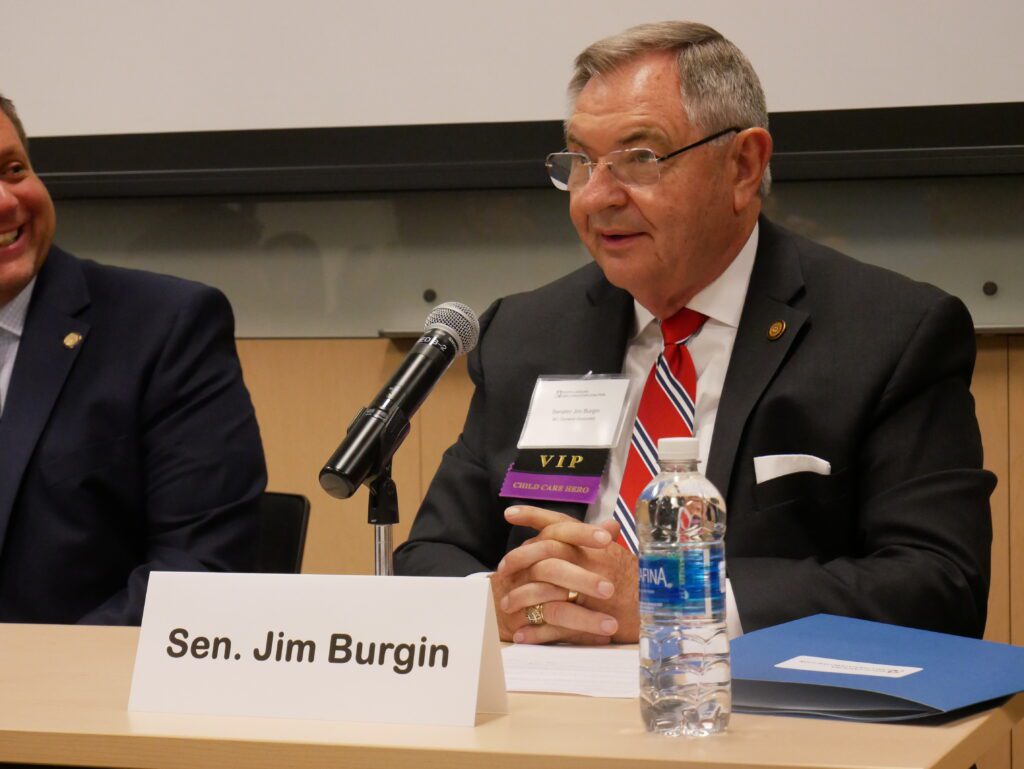
In Chapel Hill last week, the caucus chairs encouraged the advocates in the room — a handful of whom won Child Care Heroes awards for their efforts — to organize their communities around the issue of inadequate child care and to engage their legislators in compelling stories.
“We need your voices consistently over the next few months as we continue to work towards that time frame,” said Willis, a co-chair and owner of a preschool program in Charlotte.
Willis said the caucus chairs will be proposing a smaller fiscal ask than the $300 million requested this session to last programs until the next long session.
“We’ve got to look at ways that we can continue to educate folks on the importance of early childhood,” he said. “It is by far the No. 1 issue I think we’re facing right now.”
Caucus chairs also encouraged advocates to meet with local chambers of commerce and business leaders to bring their voices into conversations with policymakers.
“You’re on the front line of the economic growth that we are experiencing,” Chaudhuri said. “And so in many ways, we can’t send mothers and fathers into the workforce until we address the child care issue.”
Recommended reading

